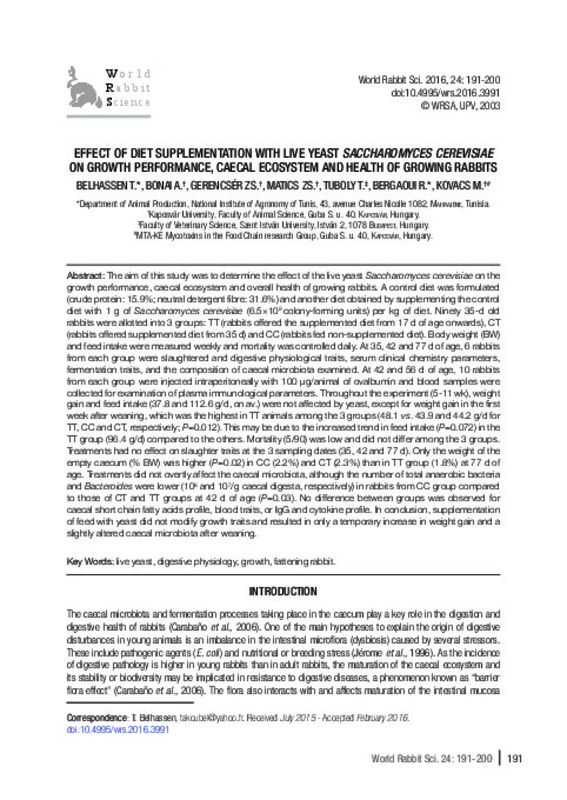JavaScript is disabled for your browser. Some features of this site may not work without it.
Buscar en RiuNet
Listar
Mi cuenta
Estadísticas
Ayuda RiuNet
Admin. UPV
Effect of diet supplementation with live yeast Saccharomyces cerevisiae on growth performance, caecal ecosystem and health of growing rabbits
Mostrar el registro completo del ítem
Belhassen, T.; Bonai, A.; Gerencsér, Z.; Matics, Z.; Tuboly, T.; Bergaoui, R.; Kovacs, M. (2016). Effect of diet supplementation with live yeast Saccharomyces cerevisiae on growth performance, caecal ecosystem and health of growing rabbits. World Rabbit Science. 24(3):191-200. https://doi.org/10.4995/wrs.2016.3991
Por favor, use este identificador para citar o enlazar este ítem: http://hdl.handle.net/10251/72563
Ficheros en el ítem
Metadatos del ítem
| Título: | Effect of diet supplementation with live yeast Saccharomyces cerevisiae on growth performance, caecal ecosystem and health of growing rabbits | |
| Autor: | Belhassen, T. Bonai, A. Gerencsér, ZS. Matics, ZS. Tuboly, T. Bergaoui, R. Kovacs, M. | |
| Fecha difusión: |
|
|
| Resumen: |
[EN] The aim of this study was to determine the effect of the live yeast Saccharomyces cerevisiae on the growth performance, caecal ecosystem and overall health of growing rabbits. A control diet was formulated (crude ...[+]
|
|
| Palabras clave: |
|
|
| Derechos de uso: | Reserva de todos los derechos | |
| Fuente: |
|
|
| DOI: |
|
|
| Editorial: |
|
|
| Versión del editor: | https://doi.org/10.4995/wrs.2016.3991 | |
| Tipo: |
|








